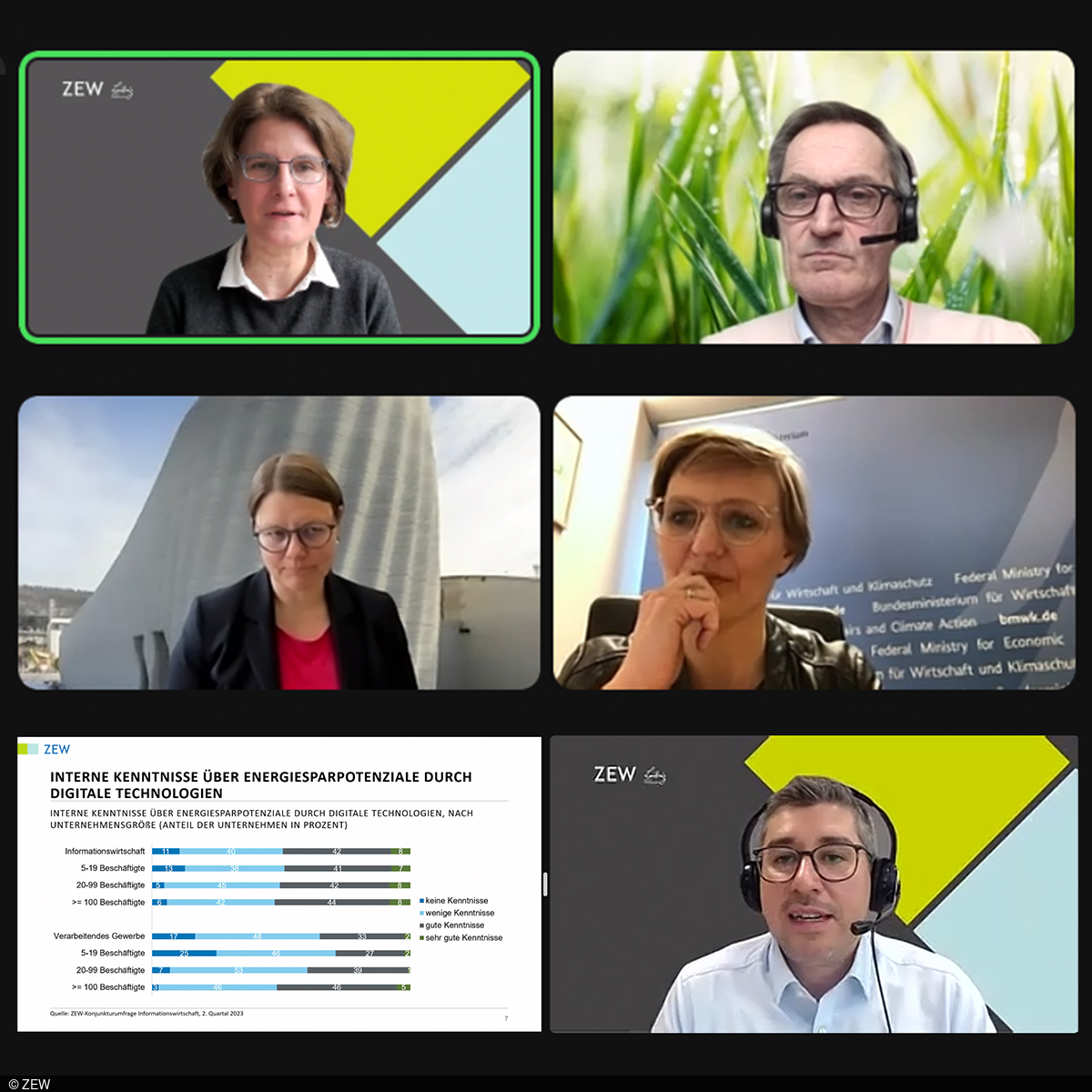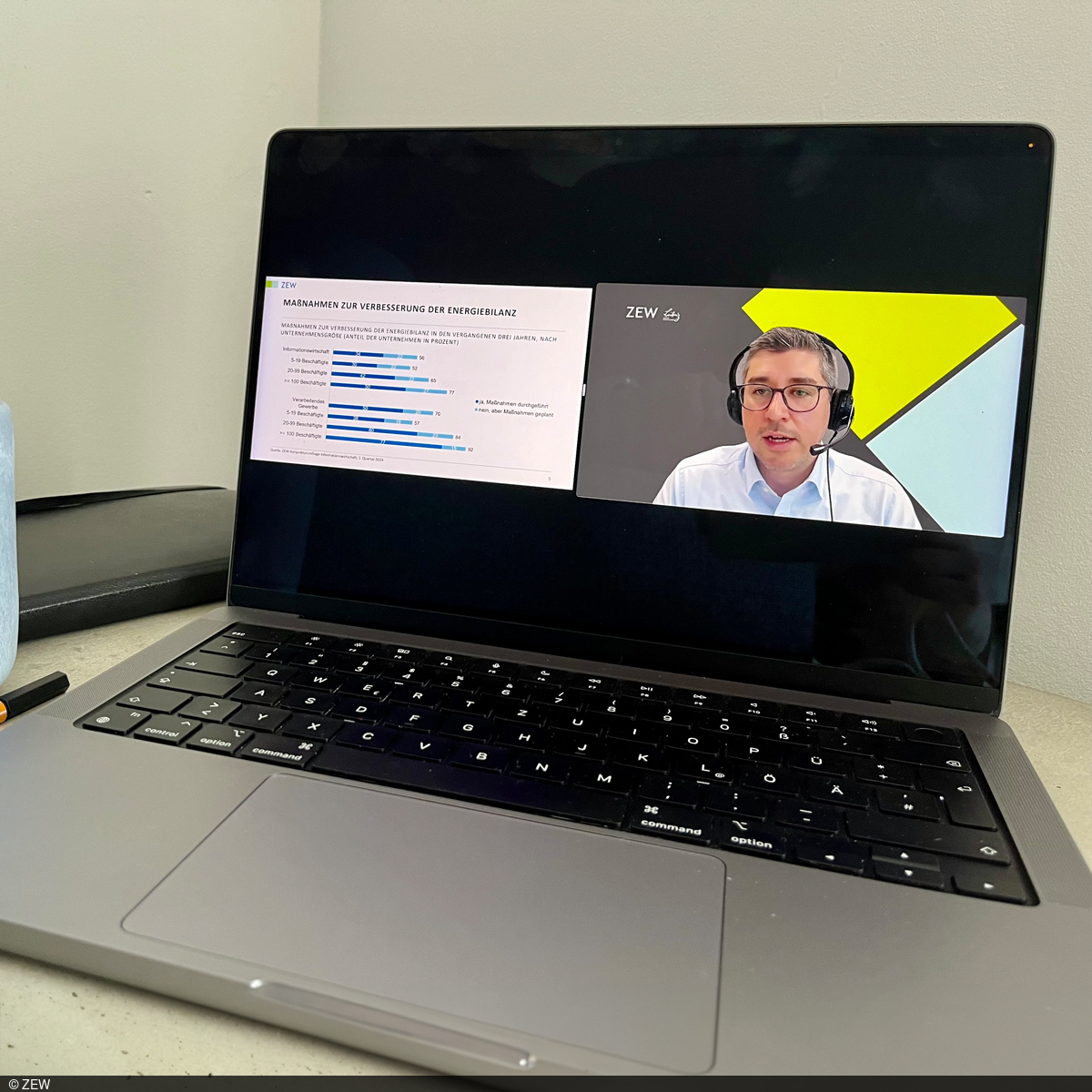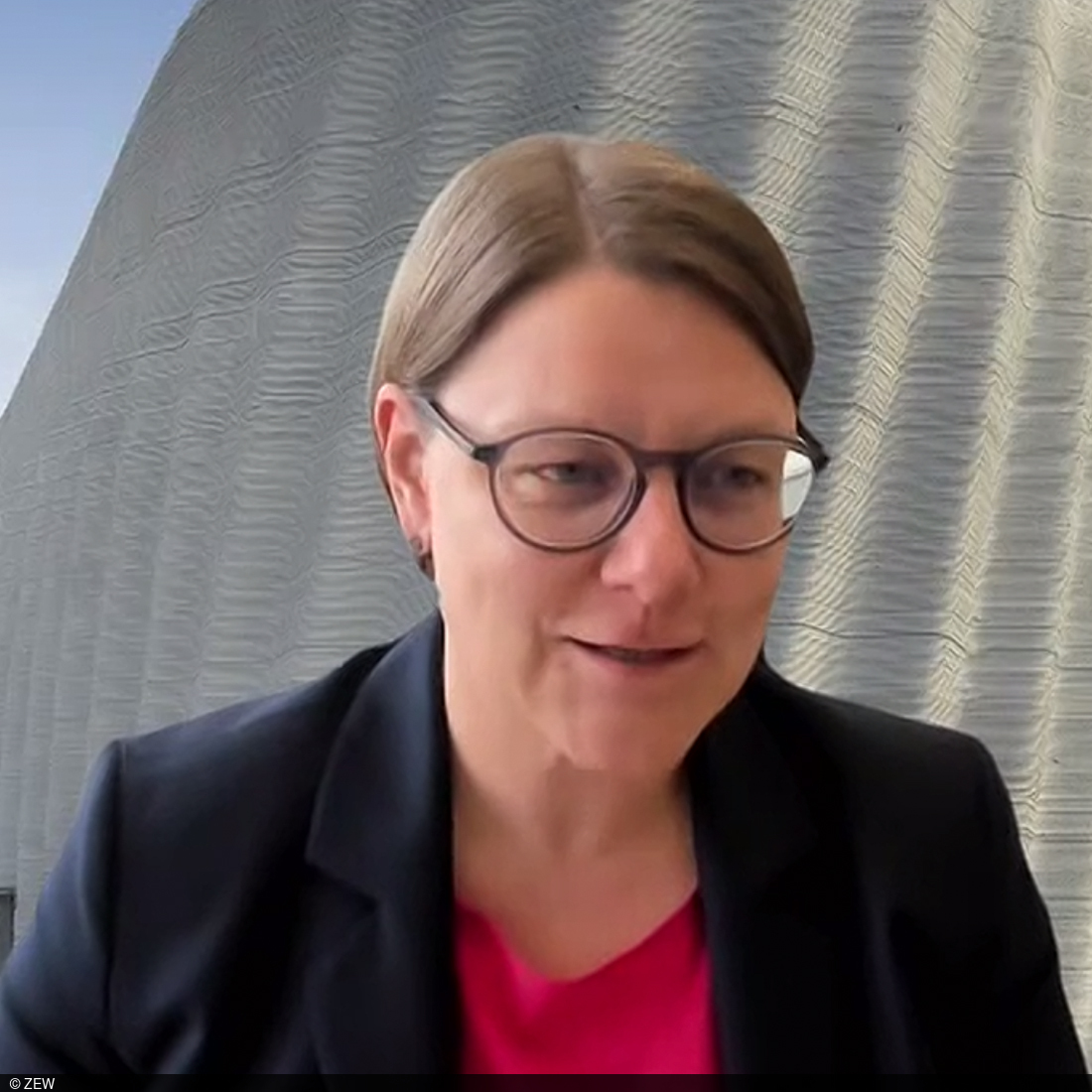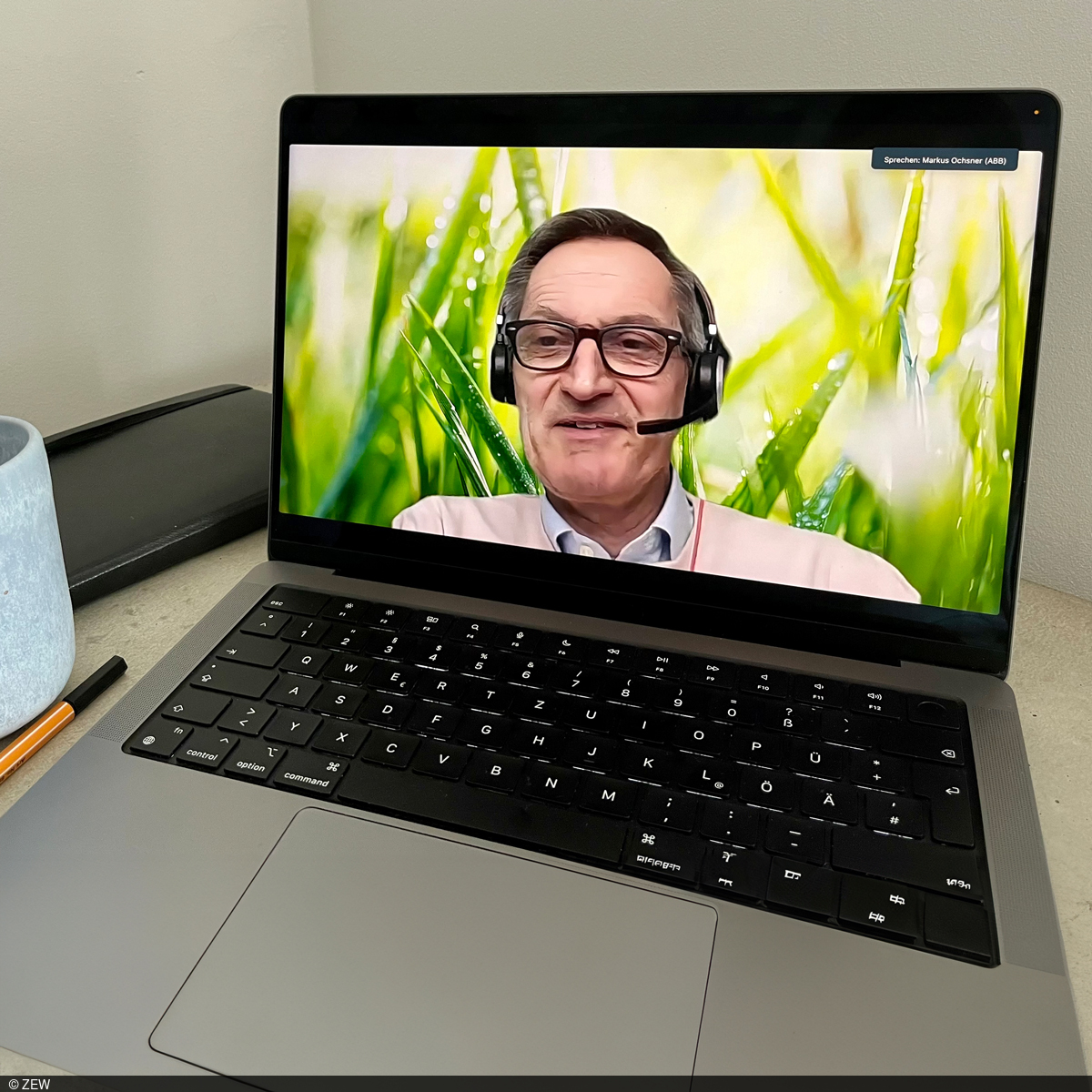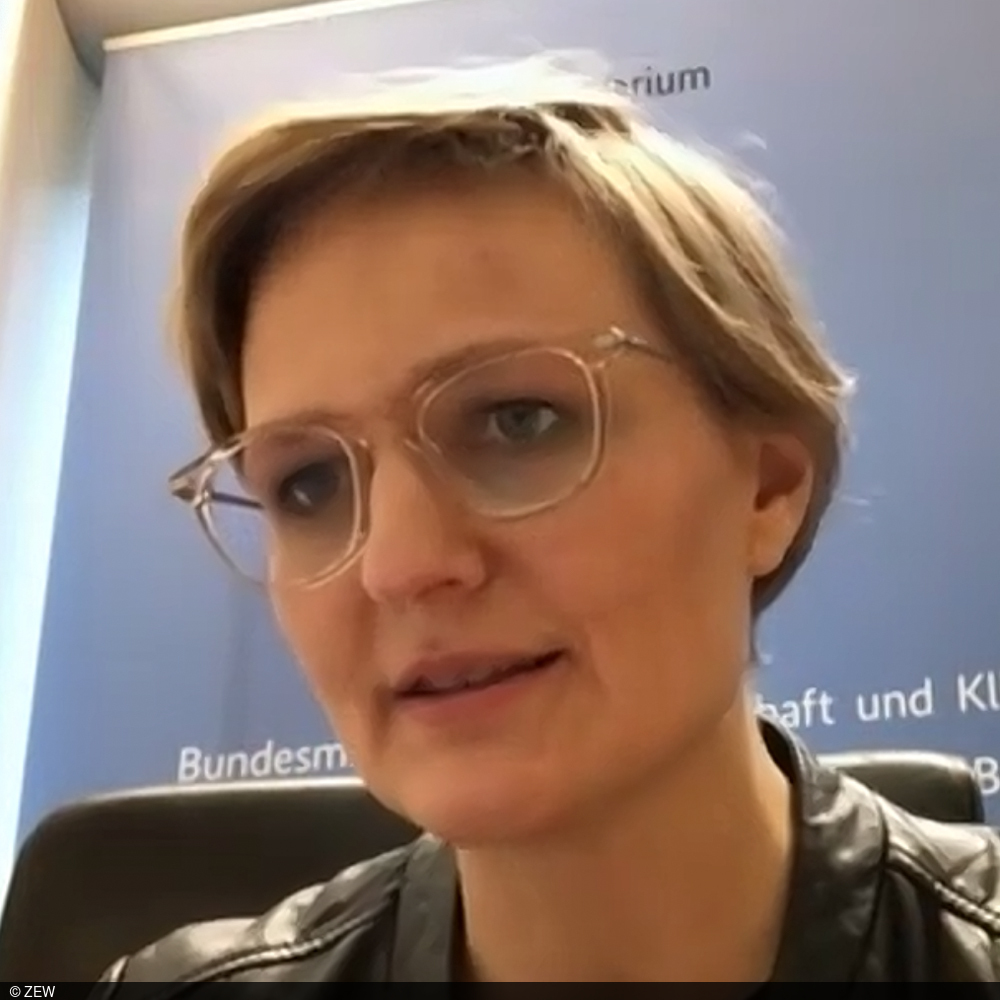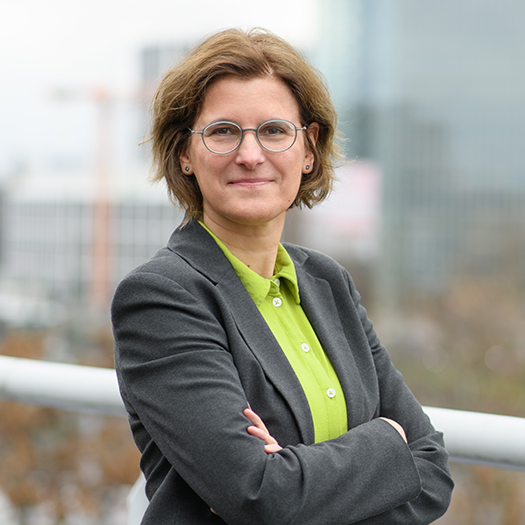Companies Call for More Incentives and Less Bureaucracy
WorkshopDigital ZEW Workshop with the Federal Ministry for Economic Affairs and Climate Action, ABB, and Heidelberg Materials
On 2 February 2024, a virtual workshop organised by the ZEW Research Unit “Digital Economy” took place in collaboration with the Federal Ministry for Economic Affairs and Climate Action (BMWK). Addressing the topic of “Digitalisation and Energy Efficiency: Current Status in German Companies”, ZEW economist Dr. Daniel Erdsiek presented a study commissioned by the BMWK. Representatives from business and politics discussed the findings and concluded that bureaucratic hurdles should be reduced and companies should be given more incentives to increase efficiency through digitalisation.
Participating in the discussion were Dr. Ines Ploss, Chief Procurement Officer and board member at Heidelberg Materials, Markus Ochsner, senior advisor and former CEO at ABB Germany, and Dr. Franziska Brantner (Green Party), Parliamentary State Secretary at the BMWK. The workshop was moderated by Professor Irene Bertschek, head of ZEW’s “Digital Economy” Research Unit. More than 100 participants attended the workshop.
Energy efficiency as a motivation for digitalisation
At the beginning of the workshop, main author Dr. Daniel Erdsiek presented the study “Digitalisierung und Energieeffizienz” (“Digitization and Energy Efficiency”), which was conducted on behalf of the BMWK. For the study, 1,500 companies were surveyed, revealing that over the past three years, about three-quarters of companies in the information economy and nearly 60 per cent of companies in the manufacturing sector have undertaken digitalisation projects. One of the key motivators for such projects was the pandemic-related shift toward working from home. However, companies now cite potential energy savings much more frequently as motivation for such projects than they did in 2020. In the information economy, 27 per cent of companies name energy efficiency as a motivation, compared to 21 per cent in 2020. In the manufacturing sector, this applies to 42 per cent of companies, an increase of 12 percentage points from three years earlier. Nonetheless, companies face challenges in improving their energy efficiency through digitalisation, such as the lack of availability and delivery difficulties of necessary materials and products, a shortage of skilled workers, and a lack of knowledge about suitable digital technologies and applications.
The study is available here (in German only). Additional information on the content is provided in the ZEW press release.
Call for less bureaucracy
In the ensuing discussion, Dr. Ines Ploss of Heidelberg Materials advocated for reducing bureaucratic hurdles to enable quicker decision-making at the public administration level. She highlighted Morocco as a positive example, where renewable energy projects are implemented more swiftly and with less bureaucracy, accompanied by transparent communication with the public. It is therefore essential to cut red tape and speed up decision-making processes. In Ploss’ view, however, the requirement for companies to report on sustainability increases transparency in this area. She also pointed out that the collected data is used for further efficiency gains within companies. If she could express one wish to policymakers, it would be for more planning certainty and price stability in energy costs.
Increasing incentives for investments
Markus Ochsner of ABB emphasised the importance of corporate incentives and investments. However, he noted the difficulty in obtaining funding. He sees a need for write-offs and tax reductions. Efficiency gains can be easily achieved through the modernisation and replacement of old facilities. He also argued that digitalisation measures should be mandatory for new projects, as they are simpler to implement in such cases. In contrast, digitalising existing processes or facilities is more challenging, leading customers to be more hesitant about investing. Ochsner shared from his experience that investments in existing facilities and systems pose significant difficulties. Responding to a question from the audience, he explained that liability issues arise when intervening in existing external systems post-implementation, which is why there is always a preference for investing in internally produced facilities.
Political levers in focus
Dr. Franziska Brantner from the BMWK expressed the hope that the CO2 price would encourage the use of energy-saving technologies and support the manufacturers of these technologies, ultimately enhancing prosperity. She emphasised the expansion of research funding, particularly through tax benefits. The Growth Opportunities Act was also mentioned as a significant measure. The call for simpler funding application processes also found approval, with the BMWK already exploring ways to simplify programmes and reduce bureaucracy. Regarding digitalisation and infrastructure development, Brantner highlighted that the next allocation of mobile frequencies should focus on fulfilling business requirements comprehensively and achieving better quality high-speed internet coverage in rural areas.
